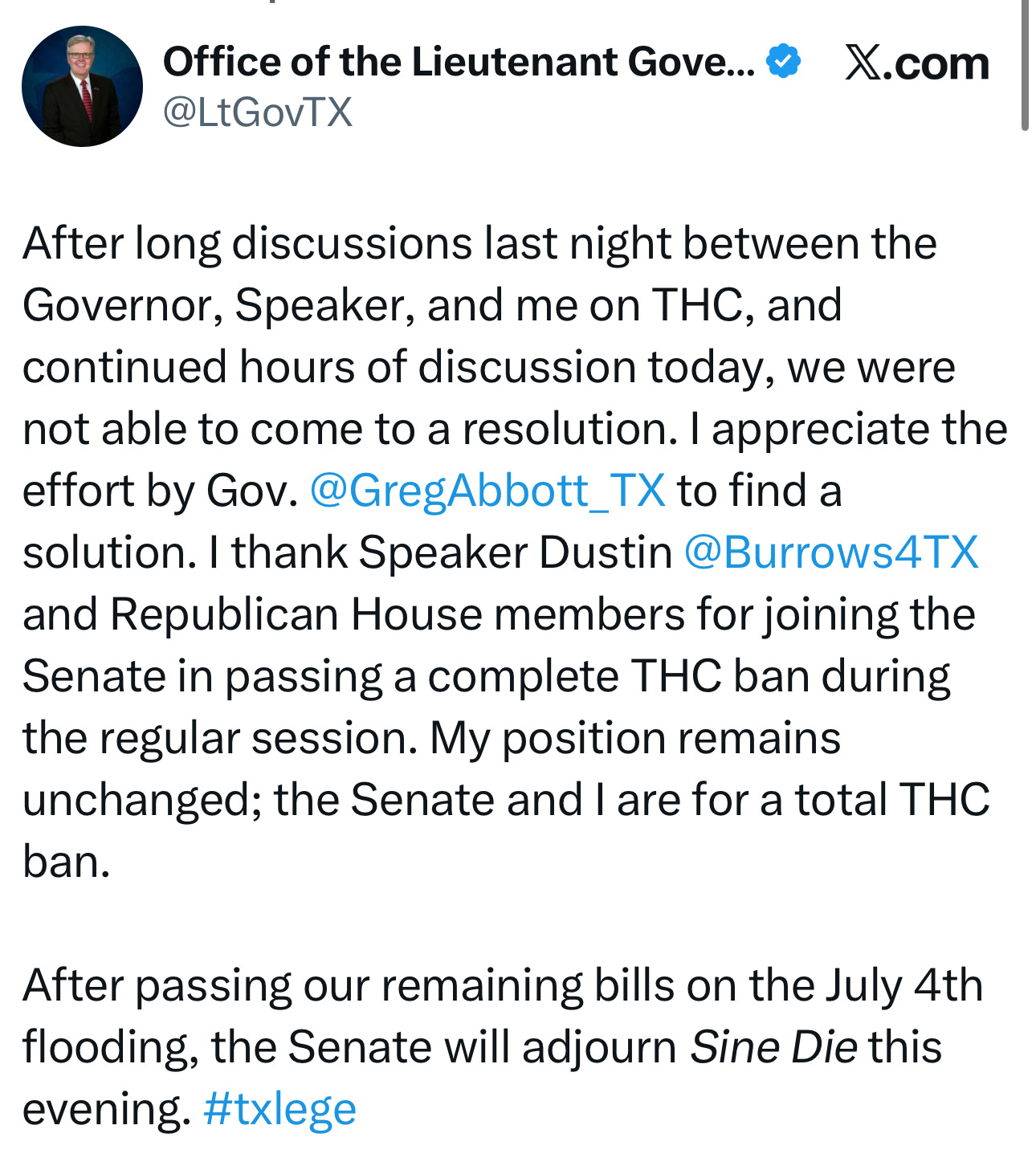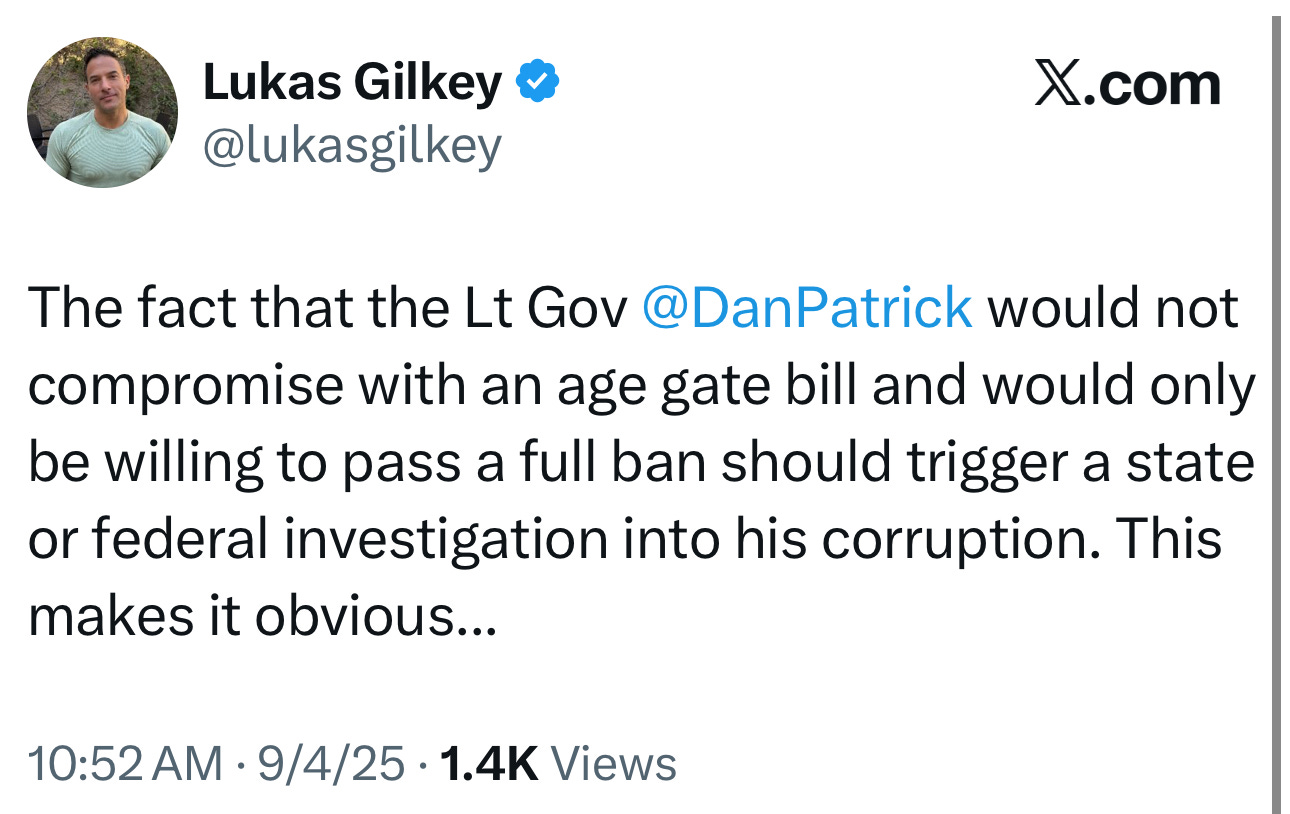Texas THC Ban Fails Again: Dan Patrick’s Power Grab Crumbles Under Public Scrutiny
For the second straight legislative cycle, attempts to outlaw hemp-derived THC products in Texas have collapsed, despite fervent efforts by Republican Lt. Gov. Dan Patrick to push a sweeping ban on delta-8, delta-9, and other hemp derivatives during two 2025 special sessions. While a limited ban on THC vape pens took effect September 1, 2025, the attack on Texas’ $8 billion hemp industry unraveled due to GOP infighting and strong public backlash. This defeat highlights a growing divide between Patrick’s heavy-handed leadership and the preferences of Texans, who increasingly see such bans as outdated and self-serving.
Dan Patrick, wielding significant control over the Texas Senate, has been accused of orchestrating a power grab disguised as a moral crusade. Critics, including hemp advocates and some Republicans, argue his push to ban THC products aligns with interests poised to profit from a restricted cannabis market or reduced competition for alcohol and pharmaceutical industries. By reviving bills like Senate Bill 6 in special sessions, Patrick sidestepped market dynamics and democratic will, prioritizing politically connected allies over the livelihoods of thousands in the hemp sector. This approach has been labeled cronyism cloaked in conservative rhetoric.
Public sentiment starkly opposes Patrick’s agenda. A February 2025 University of Houston poll showed 79% of Texans support medical marijuana legalization, with 62% favoring recreational use—a bipartisan stance. A March 2025 Quorum Report poll found 68% back legal THC products, with only 20% supporting a ban; even GOP voters leaned 57% to 29% in favor of legalization. Patrick’s selective use of polls to justify his position has raised skepticism, underscoring a disconnect between Austin’s elite and the electorate, who view his actions as dismissive of their will.
The failed campaign cost taxpayers significantly with two special sessions—called by Gov. Greg Abbott on July 21 and August 15, 2025—burning an estimated $1 million to $2 million each. These sessions, heavily focused on Patrick’s THC ban agenda, prioritized bills like SB 5 and SB 6, which critics say aimed to dismantle a thriving industry supporting 50,000 jobs under the guise of “protecting children.” This rhetoric falls flat when the goal appears to favor a select few over a legal market enabled by the 2018 Farm Bill.
Senate hearings leaned on unscientific claims, with witnesses peddling anecdotal fears reminiscent of “reefer madness” rather than evidence-based arguments. Experts note scant data ties low-dose hemp THC to the catastrophic harms alleged, and Patrick’s team largely ignored regulatory alternatives or testimony from industry and medical professionals, favoring fear over facts.
The hemp industry’s resilience marks a victory for economic freedom and public choice, but the saga exposes flaws in Texas’ governance. Patrick’s persistence in defying voters and wasting resources on special sessions raises questions about his priorities. Rather than bans benefiting insiders, effective regulation could address safety concerns while preserving jobs. The THC ban’s repeated failure signals that even in Texas, authoritarian tactics face limits when public scrutiny prevails.


